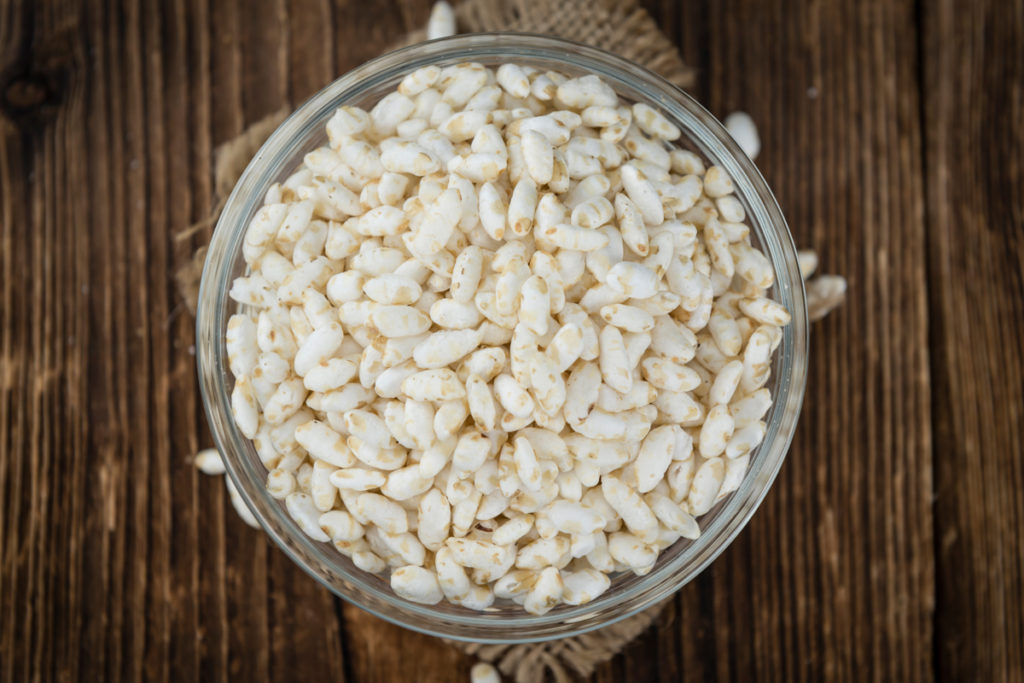A Case for Breakfast Before a Workout
New evidence points to improved muscle performance following a breakfast rich in carbohydrates.

STUDY REVIEWED: Naharudin, M.N.B., et al. 2019. Breakfast omission reduces subsequent resistance exercise performance. Journal of Strength and Conditioning Research, 33 (7), 1766–72.
Should you eat breakfast before a workout? Personal trainers hear this question often but have had little scientific evidence to support a recommendation. Additionally, some clients forgo breakfast because they’re following an intermittent-eating lifestyle, a tailored health plan or a particular weight loss strategy.
Now, a new study published in the Journal of Strength and Conditioning Research (Naharudin et al. 2019) has confirmed that eating breakfast before a workout makes a difference. Using two resistance trials, the researchers tested how eating or not eating breakfast influenced muscular performance. This month’s column looks at the results.
The Participants
Sixteen men, ages 19–27 with an average body mass index of 25.3, were recruited for this study. They were nonsmokers who trained regularly using back squats and bench presses and ate breakfast at least three times per week. Participants had a minimum of 2 years of resistance training experience.
See also: Skipping Breakfast Creates Nutrition Gaps
Pre-Study Procedures
At the pre-study meeting, the participants learned details of the study and completed human consent forms and study screening materials. Then, following a 5-minute cycling warmup and a 5-minute self-selected exercise-specific warmup, the men performed a 10-repetition maximum in the back squat followed by a 10-RM in the bench press. Using something of a trial-and-error approach, each participant progressively increased his lifting load on the back squat and bench press until accurate 10-RM weights were determined.
Study Trials
All participants completed two trials, one with breakfast and one without. Trials were scheduled 3 days apart, and each test group started its trial after 10 hours of sleep. For the breakfast trial, participants consumed a meal of rice cereal, milk, bread, butter, jam and orange juice that amounted to 1.5 grams of carbohydrate per kilogram of body mass for each participant. For the no-breakfast trial, participants drank water equivalent to the total water content of the breakfast meal. Meals were consumed within a 10-minute period, followed by 2 hours of seated rest in the lab.
The training workout that followed began with cycling for 5 minutes, followed by a self-selected exercise warmup. Next, participants performed two warmup sets of back squats and bench presses, doing 10 repetitions at 30% and 60%, respectively, of their 10-RM. Participants then completed four sets to failure for both exercises at 90% of 10-RM. There was a 3-minute rest between sets.
Study Results
Compared with the breakfast trial, during the no-breakfast trial participants performed 10 fewer back squat repetitions over the four sets, for a decrease of 15%. Specifically, there were fewer back-squat repetitions in sets 1 and 2. Also, in the no-breakfast trial, the participants completed fewer bench press repetitions in sets 1 and 2, for a decrease of 6%. There were no differences between trials in sets 3 and 4.
Major Study Takeaway
From this study, it is clear that eating breakfast increases the force production output of morning resistance-training workouts. The researchers go further, suggesting that, for optimal muscle strength performance, the breakfast food should be high in carbohydrates. This leads to the next question: Why is a high-carbohydrate meal optimum for morning resistance training?
See also: Analyze Today’s Hot Button Issues in Nutrition
Benefits of Carbohydrates and Breakfast Before a Workout

For resistance training clients, research encourages consumption of a dietary supplement prior to morning workouts.
An important fuel for optimizing resistance training performance is the glycogen in muscle. Glycogen is the stored form of glucose molecules that the body uses for bursts of energy, such as those needed in resistance training. In an early scientific review on carbohydrate supplementation, Haff et al. (2003) discovered that high levels of glycogen lead to positive resistance-training outcomes in large-muscle-mass exercises performed with high training volumes and moderate loads. Haff and colleagues proposed that the amount of muscle glycogen used in large-muscle exercises was directly related to the amount of work completed during resistance training.
Evidence supporting this proposal included a study by Robergs et al. (1991), which demonstrated that six sets of six repetitions of leg extension exercise at 70% of 1-RM resulted in a 38% reduction in glycogen content of the vastus lateralis, a powerful muscle in the quadriceps. Additionally, in a research review on fatigue from intermittent exercise, Lambert & Flynn (2002) concluded that during multiple bouts of high-intensity resistance exercise, muscle glycogen is likely to reach a level where it is no longer able to sustain ATP production for the demanding work. Thus, fatigue resulting from glycogen depletion will ensue. For resistance training clients wishing to maintain peak performance, Lambert and Flynn encouraged consumption of a dietary supplement—such as a breakfast—prior to morning workouts.
See also: Nibbling, Fasting and Feasting: Myths About Meal Timing and Frequency
10 Facts About Breakfast Before a Workout

Breakfast is a strong way to start the day and offers a range of benefits.
Here are 10 facts about breakfast from the data presented in a review article on the effect of breakfast on appetite regulation, energy balance and exercise (Clayton & James 2015).
- People who regularly skip breakfast tend to have higher BMIs.
- The prevalence of obesity-related chronic diseases, such as type 2 diabetes and coronary heart disease, increases in people who miss breakfast regularly.
- People who eat breakfast have healthier lifestyles.
- People who eat breakfast eat fewer snacks.
- Although people who omit breakfast tend to eat a little more at lunch, this increase does not fully compensate for calories missed at breakfast.
- People who exercise in the morning are encouraged to eat breakfast 1–4 hours before exercise to avoid any deleterious effects on the workout.
- During nighttime sleep, liver glycogen drops by about 40%.
- People who eat breakfast have a higher resting metabolic rate (i.e., burn more calories) in the morning than those who don’t.
- The breakfast meal typically equates to 20%–35% of daily energy requirements for adults.
- People who want to maximize their early-morning exercise performance—but do not wish to eat breakfast—may be able to improve their workouts by consuming a carbohydrate drink.
Updated September 9, 2021.
References
Clayton, D.J., & James, L.J. 2015. The effect of breakfast on appetite regulation, energy balance and exercise performance. Proceedings of the Nutrition Society, 1 (10), 1–9.Haff, G.G., et al. 2003. Carbohydrate supplementation and resistance training. Jo
Len Kravitz, PhD
Len Kravitz, PhD is a professor and program coordinator of exercise science at the University of New Mexico where he recently received the Presidential Award of Distinction and the Outstanding Teacher of the Year award. In addition to being a 2016 inductee into the National Fitness Hall of Fame, Dr. Kravitz was awarded the Fitness Educator of the Year by the American Council on Exercise. Just recently, ACSM honored him with writing the 'Paper of the Year' for the ACSM Health and Fitness Journal.






